CAECILIE NORBY / “African Fairytale”
I had a hard time choosing which track to feature. Wayne Shorter’s “Footprints” along with Herbie Hancock’s “Maiden Voyage,” are probably the two most popular non-Coltrane, post-1959 jazz compositions. As far as what is today considered modern jazz, that started in the sixties and as far as jazz history goes the sixties began in 1959 with the release of a slew of really milestone recordings, Coltrane’s Giant Steps, Miles’ Kind of Blue, and Ornette Coleman’s The Shape of Jazz To Come. (Go here to read our run down of the significance of 1959 in jazz history.)
But, as we all know, everything must change. Jazz must, and did, change! One of the major architects of that change was saxophonist/composer Wayne Shorter whose nickname used to be “Weird Wayne.” That familiar moniker was a left-handed homage to Shorter’s intellectual preciosity, i.e. the guy was interested in things that most people were not. When others zigged or zagged, he drew an arc, threw a curve; instead of taking the fifth when charged at a fourth degree inquisition, Wayne would Zen out and go a silent way, returning with a few cryptic notes from another world which eventually became iconic musical compositions.
A lot of times we could only marvel at those stones (or, depending on your viewpoint, those jewels) his investigations had uncovered. I always wanted to like Wayne more than I did. Initially Wayne’s succinct abstractions seemed a bit insubstantial next to the torrent of sounds gushing out of Pharoah’s horn. My reservations notwithstanding, like a majority of the jazz world, I really dug some of Wayne’s songs, especially “Footprints.” My slowness getting up to speed fortunately has not permanently damaged me: today I am an advocate of Wayne Shorter's musical abstractions.
With all of the above in mind, let's see what others have done with one of Wayne Shorter's signature songs.
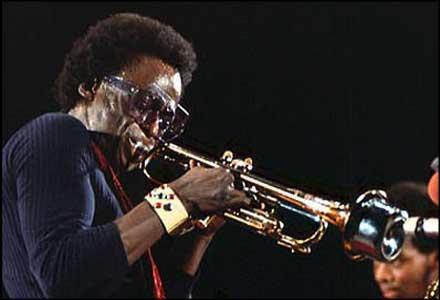
1. Miles Davis – Live at Juan-les-Pins 1969 (bootleg)
This is some ultra-masculine, blow down the barriers music with alpha-male Miles Davis leading the charge. It’s from a period when the music was often a solid stream segueing from one composition to the next, hence there is an abrupt entry and exit to this version of “Footprints.” The frontline is Miles and Wayne. The rhythm section is Chick Corea – piano, Dave Holland – bass, and Jack DeJohnette – drums. DeJohnette offered an interesting combination of the melodic complexity of Tony Williams and the raw rhythm power of Elvin Jones with an edge in the thunder & lightening direction. Wayne is fierce here, much more fierce than he usually plays.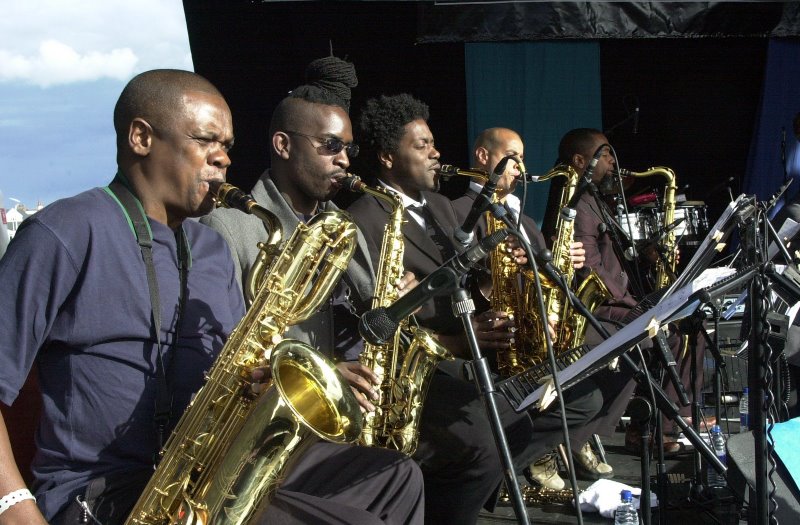
2. Jazz Jamaica Allstars – Massive (Dune – 2004)
This band was featured on BoL before. Go here to read about them. I really dig how they handle “Footprints.” They are well into it before you even recognize the song. It’s a brilliant turnaround, sort of like translating the song into a foreign language and then bringing that new tongue as though it were the original tongue.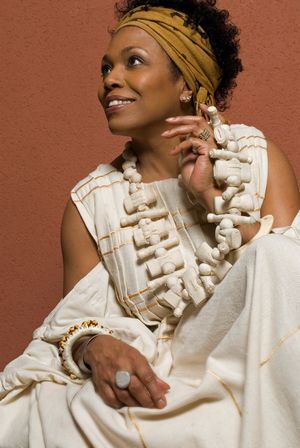
3. Dee Dee Bridgewater – Red Earth (Emarcy – 2007)
Dee Dee is a Paris-based expatriate from the United States. An awesome vocalist and actor with international tastes, Dee Dee went to Mali and out of that experience produced this totally awesome revisioning of “Footprints.” What I find most interesting is that this is not an "afro" inflected version but rather a full out African-based version: check not just the rhythms but also the instrumentation, the intonation, and how the music is shaped and flows.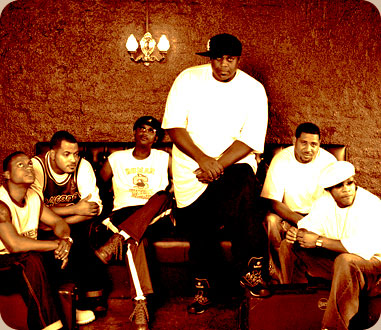
4. Soul Rebels – Let Your Mind Be Free (Mardi Gras Records – 1994)
This is a young, New Orleans brass band. Street music with a twist. Sound sort of like kissing cousins to their across the water Jazz Jamaica cousins. That same syncopated approach to rhythm and refashioning the melodic lines via note placement and rhythmic emphasis. I like their soloing also; they don’t sound like pop cats just noodleling. They have a strong jazz sound.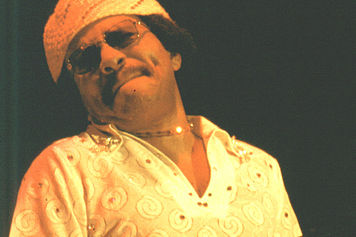
5. Lonnie Liston Smith – Cosmic Funk (BMG – 1974)
Pianist Lonnie Liston Smith, an alumnus of the Pharoah Sanders band, figured a way to merge serenity and shouting, to combine way-out exploratory grooves with mellow meditative states. His music was hugely popular and even more hugely influential in shaping what came to be known as smooth jazz. What is exciting about Smith’s music, as is evident in this version of “Footprints,” is that it has volcanic intensity, sometimes held in check, and sometimes, as it is here, unleashed. This is some seventies fire, the bass and the percussion lock in the groove like hungry pit bulls stealing a steak from an unattended grill. All the other instruments take a back seat to the beats pounding down.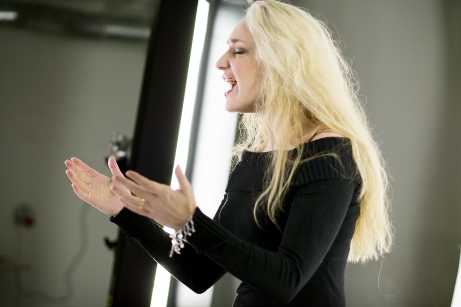
6. Caecilie Norby – London/Paris (MBO – 2004)
Here is our feature cut. Got to give a shout out to the whole band for holding together this pulsating fireball: Caecilie Norby – vocals; Lars Danielsson - bass, cello, musical director; Ulf Wakenius – guitars; Carsten Dahl - grand piano; Jesper Nordenström - grand piano, synth; Morten Lund – drums; Xavier Desandre Navarre – percussion. Featuring original lyrics by Ms. Norby, “African Fairytale” is a truly inspired interpretation of Wayne Shorter’s classic composition. For sure this doesn't sound anything like what one would imagine to be an interpretation by Danish musicians. Indeed, even after you've read who it is, you might not believe it.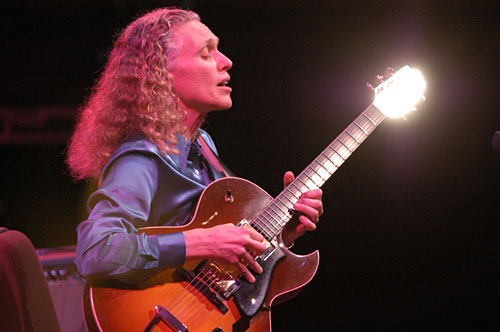
7. Mimi Fox – Standards (Origin – 2001)
Next to all the percussion heavy versions we shared thus far, one might expect a solo guitar performance to pale in comparison but Ms. Fox has a game plan including an approach to solo guitar that emphasizes chords rather than fleet fingered picking and although she’s playing electric there is an acoustic richness to her sound, sort of like the difference between a premium aged wine and aged whiskey. Her emphasis is more on the harmonics than on the melody.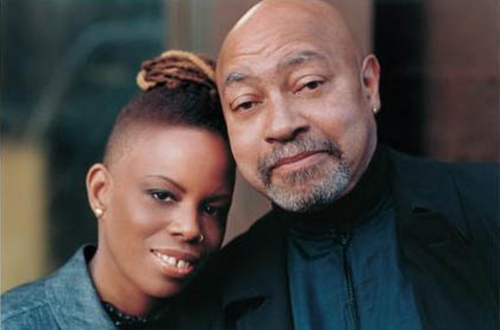
8. Kenny Barron and Regina Carter – Freefall (UMVD – 2001)
I’m not a big fan of jazz violin mainly because the sound of the instrument does not appeal to me but there are some violinist I like in this mode, Ray Nance chief among them. Although I have not previously been bowled over by Ms. Carter’s work (again due to my taste and not her failures), this duet encounter with pianist Kenny Barron is top drawer.
I’ve long been a fan of Mr. Barron and I believe his work is exemplary on this recording but Ms. Carter also shines. The intertwining of their two instruments is enchanting. Even without a rhythm section they swing like newly oil front porch swing on a summer evening with a glass of spiked lemonade and your beau due to arrive in the next quarter hour or so. Everything is everything.
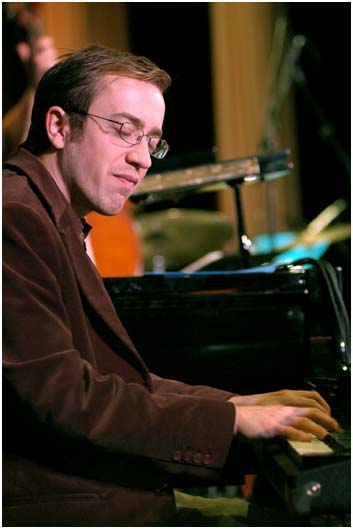
9. Geoff Keezer – Footprints Single (iTunes/MazJazz – 2005)
This is one of those rarities. I don’t have any info on the personnel, all I can tell you is that it’s something Art Blakey would have been proud of (Keezer was a Jazz Messenger), although stylistically it has an Ahmad Jamal-on-speed vibe to it, especially the percussion and the way Keezer uses space rather than trying to fill up every hole with a note or two. In one sense this is the most traditional of all the versions and yet a version that is very, very far removed from the usual sound of “Footprints,” which is seldom taken at such a supercharged tempo.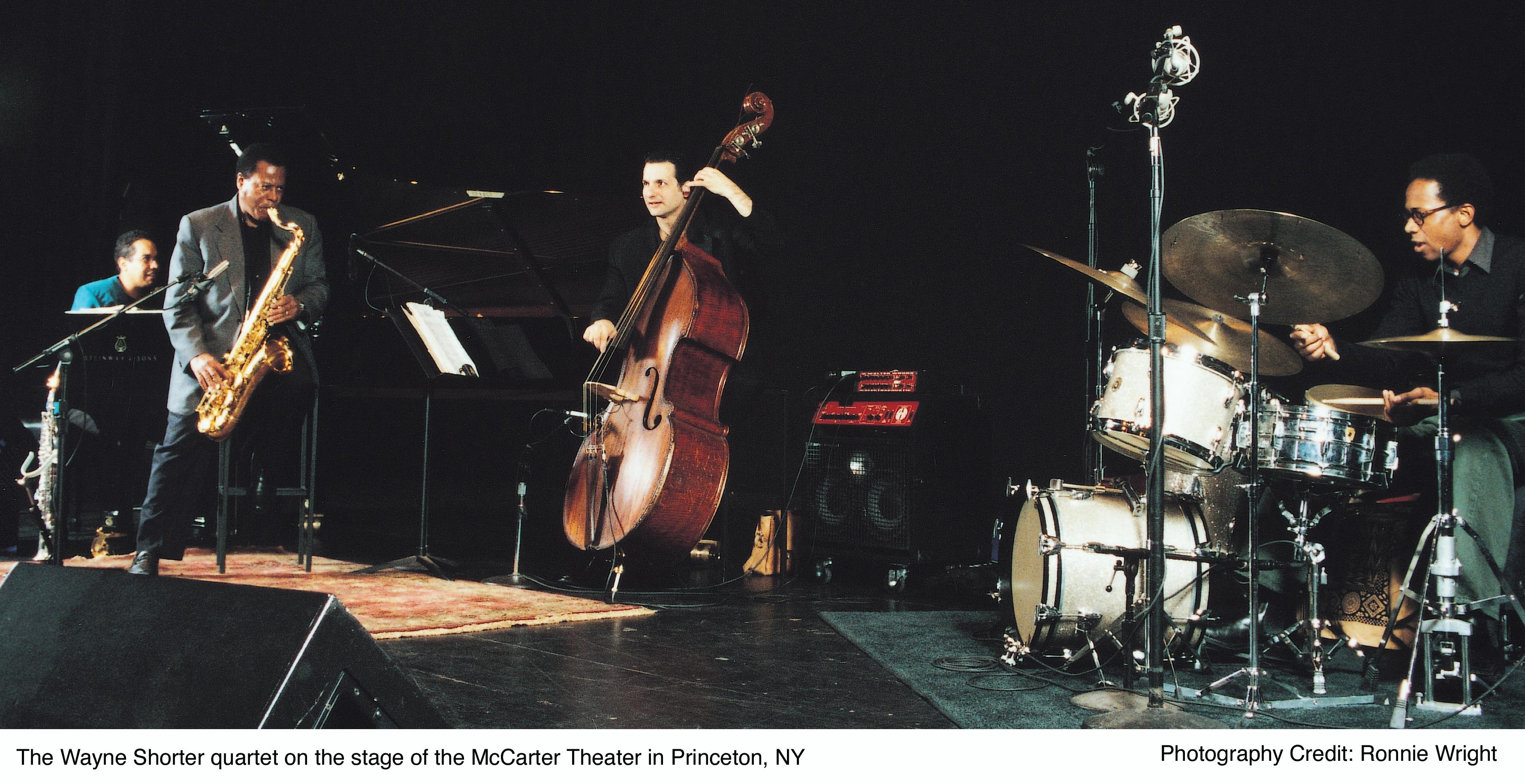
10. Wayne Shorter – Footprints Live (Verve – 2002)
This is Wayne’s working quartet at his most adventurous working with a sympathetic band of young iconoclasts. 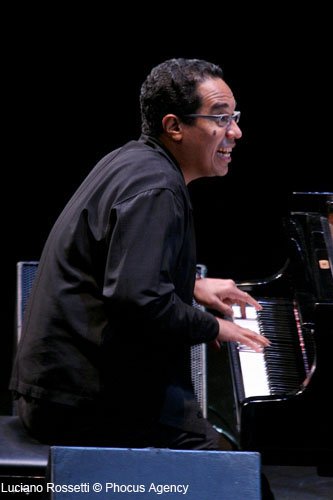
Danilo Perez on piano seems as though he has the whole history of Western harmonic developments at his fingertips but his gift is not the amount of material he knows but rather the sagacity of his choices; from a multitude of options, he is able to choose a significant one, lay it in the right spot and move on. The beauty of brevity in the hands of someone with technique to burn is breathtaking—and make no mistake, my man can do the Bud Powell thing in overdrive. 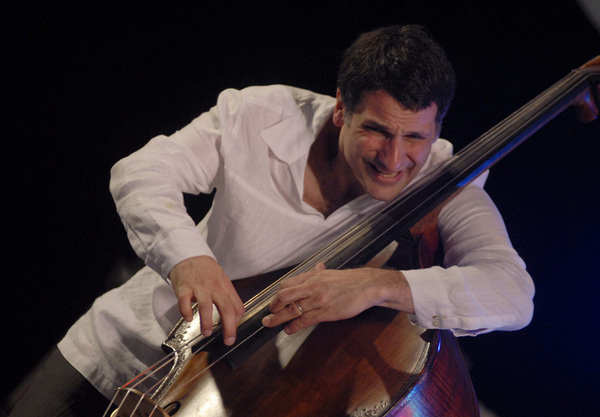
John Pattiucci is the reigning heir apparent of the Ron Carter school of avant time keeping. If Shorter is a surgeon, Pattiucci is that assistant who hands the master the tool he needs exactly just as he needs it; no wasted motion, no holding anything too long and no missing a cue. Listen closely; you can not tell who arrives first at a given harmonic. 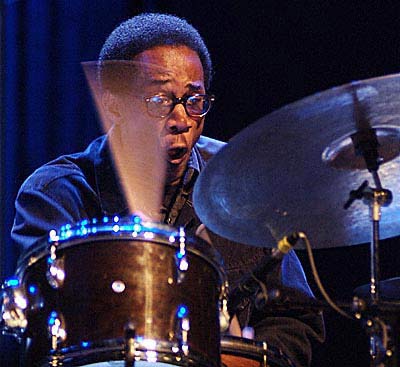
I know Brian Blade from when he was in college in New Orleans playing with the Victor Goines quartet. I know Brian Blade from when we all knew that pretty soon everyone would know (or would want to know) Brian Blade. The quietest, most unassuming human being whose acquaintance you might ever want to make. Put him behind a drum set and he becomes an absolute monster. While must acolytes go for Tony Williams’ power, Brian has the sensitivity—sometimes it’s the rhythms he doesn’t play that swing the session the hardest, that make you smile and shake your head. Brian’s ear for dynamics is the most deft of any known drummer. Brian plays with the subtlety of a slow sunrise on a soft spring morning.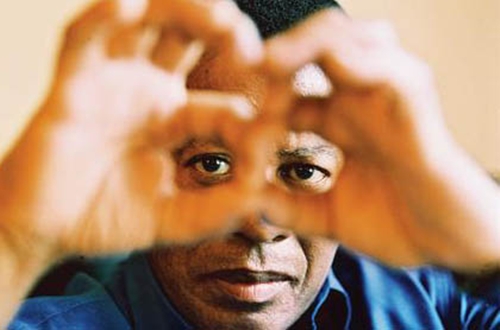
Wayne Shorter was born in Newark, New Jersey in 1933. The music he is making today is both a throwback to the sixties years with Miles and that 2nd great quintet and also a futuristic meditation on musical abstractions. The way Wayne plays you never know what he is playing until you catch a glimpse of a familiar theme and then with the merry mischievousness of a two year old, as soon as you’ve got it, Shorter has moved on to something else. His new music offers the odd intoxication of searching for the familiar while constantly being surprised by the unexpected. You never know what’s coming next, especially given that it takes a moment to catch up with what just came before: oh, that’s what that was, and that ‘that’ could have been one of your all time favorite Wayne Shorter songs.
The thrill of the never ending search; constant discovery. Many might be frustrated by all this darting about but for those of us who dig inner exploration, 'Weird Wayne' offers a cornucopia of astonishments.
—Kalamu ya Salaam
Impressed with Caecilie
As Kalamu aludes to, a lot of these version of "Footprints," especially the ones that are dense and deep with the improvisation, do nothing more than frustrate me. I can't tell you how many times I was thinking, "Just play the damn song!" But as Kalamu also said, that's on me not the musicians.
Now I did really, really like the two European/African vocal interpretations. The Dee Dee Bridgewater and Caecilie Norby are both fantastic. Great, great interpretations. Of course, as a certified lover of anything that is Middle Period Miles, my favorite version of "Footprints" is the one from Miles Smiles where Miles and Wayne play the mournful theme as if they're joined at the hip. Then Miles takes off on one of his splotchy, sibilant explorations while Tony Williams paints the hi-hat all sorts of glorious oranges and reds and golds. As instrumental versions go, that's the one for me.
Back to Caecilie for a second. If you like jazz vocals and you missed Kalamu's feature on her a couple of weeks ago, you might want to head over to iTunes or Amazon to see if you can sample some tracks. At the time, I think my reaction was sort of lukewarm, but the more I listen, the more I'm impressed with Caecilie. I'm still not that into her performance of standards, but her originals are great. Her studio version of "African Fairytale" (AKA "Footprints") is just as good as the live version featured here. She's got another record named "Tea In The Sahara" that's really good. And then there's a piece named "A Poem & A Prayer" that is simply astonishing. Check her out.
—Mtume ya Salaam
This entry was posted on Monday, May 26th, 2008 at 12:12 am and is filed under Cover. You can follow any responses to this entry through the RSS 2.0 feed. You can leave a response, or trackback from your own site.
Leave a Reply
| top |